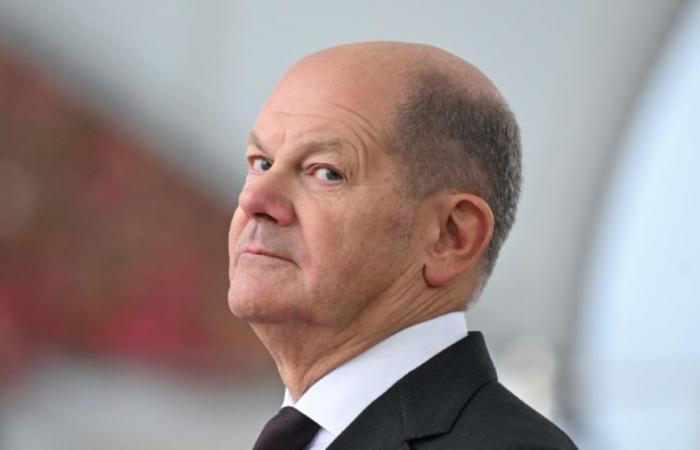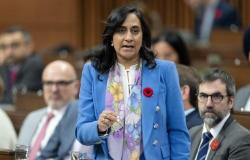German Chancellor Olaf Scholz at the Chancellery in Berlin, October 22, 2024 (AFP / RALF HIRSCHBERGER)
German Chancellor Olaf Scholz is under increasing pressure from the opposition and economic circles to leave power without delay after the breakup of his fragile government coalition, which plunged Europe’s largest economy into a serious crisis.
“We simply cannot afford to have a government without a majority for several months,” said the leader of the main opposition bloc, the conservative CDU-CSU, Friedrich Merz.
The long-feared implosion of the government comes at the worst time for Germany, grappling with a serious industrial crisis, and for Europe, which is worried about the repercussions for its trade and security of the election of the Republican Donald Trump in the American presidential election.
During a meeting of around 25 minutes at the chancellery, Friedrich Merz promised Olaf Scholz to cooperate on certain pending laws if the question of confidence was raised “in the coming days”.
But the head of the executive declined and is sticking to the set date, January 15, in order to pave the way for elections in March.
German business and industrial circles are also calling for elections quickly, as are the AfD, a far-right party, the BSW (radical left), as well as Christian Lindner, the recently sacked Finance Minister, whose departure caused the fall of the heterogeneous coalition made up of the Social Democrats, the Greens and its liberal party (FDP).
“Our country has no time to lose,” he insisted.
– Appeal to “reason” –
German President Frank-Walter Steinmeier called on politicians for “responsibility”, stressing that the country “needs stable majorities and an effective government”.
The president, a social democrat like the chancellor, will be responsible for dissolving the Bundestag if Olaf Scholz loses, as expected, the question of confidence.
Despite the earthquake caused by the collapse of his coalition in power since the end of 2021, Olaf Scholz wants to go to Budapest in the evening to meet his European counterparts and Ukrainian President Volodymyr Zelensky.
On the other hand, he canceled his planned trip to COP29 in Baku which begins on Monday.
The government’s agony lasted for many months due to deep differences on budgetary and economic policy.
The social democrats and environmentalists are in favor of reviving the stalled national economy through spending, while the liberals advocate social cuts and strict budgetary discipline.
Mr. Lindner is replaced in Finance by one of Olaf Scholz’s close advisors, Jörg Kukies, a 56-year-old former investment banker.
Two other liberals are leaving the government, while Transport Minister Volker Wissing decided to stay and left his party in the process. He will be in charge of Justice, in addition to Transport.
– “We will make decisions” –
The government is now a minority, but “we are in office, we can make decisions and we will make decisions”, assured Vice-Chancellor Robert Habeck (Greens). The opposition refuses any support for the government.
As for the 2025 budget, the preparation of which is at the origin of the current crisis, there is uncertainty. A minimum and reduced version could be applied from January.
Coalition breakdowns are very rare in Germany but the paralysis of the Scholz team could not continue, many commentators believe.
“Fortunately it’s over,” headlines the magazine Der Spiegel, summarizing the general feeling in the country.
Olaf Scholz hoped that the election of Donald Trump, a fan of protectionism and diplomatic confrontations, would force his coalition to close ranks. But the opposite happened.
If elections were to be held tomorrow, the conservative opposition would come out on top with 32% of the votes according to a new poll Thursday by the Ipsos institute, carried out at the beginning of November, before the breakup of the coalition.
And Friedrich Merz would be the favorite to become chancellor. But he too would have difficulty forming a majority coalition, with the far-right AfD lying in wait in second position (18%) with whom he rejects any government alliance. The SPD is credited with 15%, the Greens with 11%, and the FDP with just 5%.






